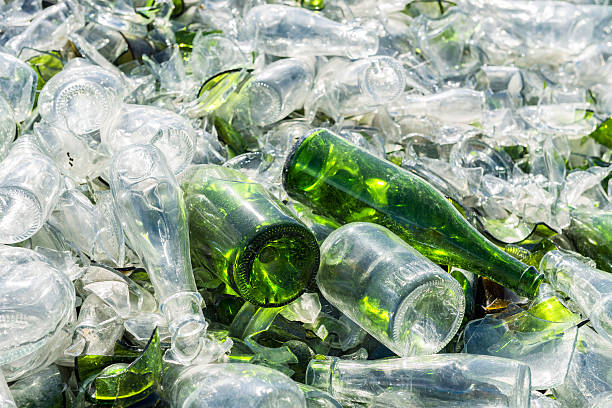Man finds business in turning discarded bottles into glasses

His work has a positive impact on the environment as the bottles he recycles have been a nuisance in the region.
Motivated to give his family a comfortable life and protect the environment, Meshack Kipawa started turning used bottles into glasses.
Kipawa, a 45-year-old Diani resident, claimed the idea came to him by chance while scanning the internet.
More To Read
- Why are so few environmental criminals on Interpol’s ‘most wanted' list?
- Cabinet unveils new pricing framework to curb infrastructure costs
- Jane Goodall, the gentle disrupter whose research on chimpanzees redefined what it meant to be human
- Earth Day marked as global risks report warns of escalating environmental threats
- UN summit ends without agreement on biodiversity funding
- Duale urges Kenyans to embrace conservation as Mazingira Day approaches
Kipawa is a father of four children and the owner of a solar equipment business.
“I’ve been a businessman throughout my life and currently offer solar solutions. One day, while browsing the internet, I noticed a man recycling bottles to produce decorations and glasses. The video piqued my interest, so I decided to try it,” he said.
He originally made the glasses for personal use, but has since turned it into a business enterprise.
“After making my first glass, I put it on my Facebook page and received a lot of positive feedback, with some people asking for the pricing, so I decided to turn my pastime into a business,” he said.
When asked where he gets his raw materials, Kipawa said that he engages people in the neighbourhood to supply him with the bottles at a fee.
His work has a positive impact on the environment as the bottles he recycles have been a nuisance in the region.
He spends most of his free time scouting for disposed bottles which he converts into glasses
“As a Kenyan and environmental activist, I am doing my part to protect our ecology. People consider this trash, but in my opinion, it is a treasure,” he said, urging communities to find alternative uses for waste products rather than destroying the environment.
“The demand is currently high, but I thank God that some of my neighbours have agreed to help me collect the bottles at a small fee. I pay them Sh20 for every five bottles,” he said.
Kipawa said his business allows him to save the environment while at the same time earning a living.
“Careless disposal of bottles can harm the environment and public health, as they can enter waterways and clog sewer lines, potentially leading to water pollution and the spread of waterborne diseases like cholera,” he said.
Kipawa explained that after collecting the bottles, he washes them and then cuts them using a saw and a mattock to shape them.
“I collect the bottles, clean them with soap and water to remove the paper labels, and using a simple machine, I cut them to a convenient size,” he said.
While working, he wears gloves and eye protectors for safety.
He sells the final products at Sh50 for small glasses and Sh60 for large ones.
Although he currently only distributes the glasses locally, he plans to eventually sell them to customers outside Kenya.
He uses his social media platforms to promote his goods.
Kipawa says he has challenges cutting the bottles into glasses and hopes that he will eventually buy a decent bottle cutter that will make his job easier.
“My hope is for the government to support such initiatives by providing people like us with machines to expand our businesses. If supported, I can employ more people to produce glasses,” he said.
He urges young people to devise ways to make a living rather than complaining about the scarcity of jobs and only looking for white-collar work.
“Youth can form groups to create self-employment then call on the government to support them,” he said.
Top Stories Today












































